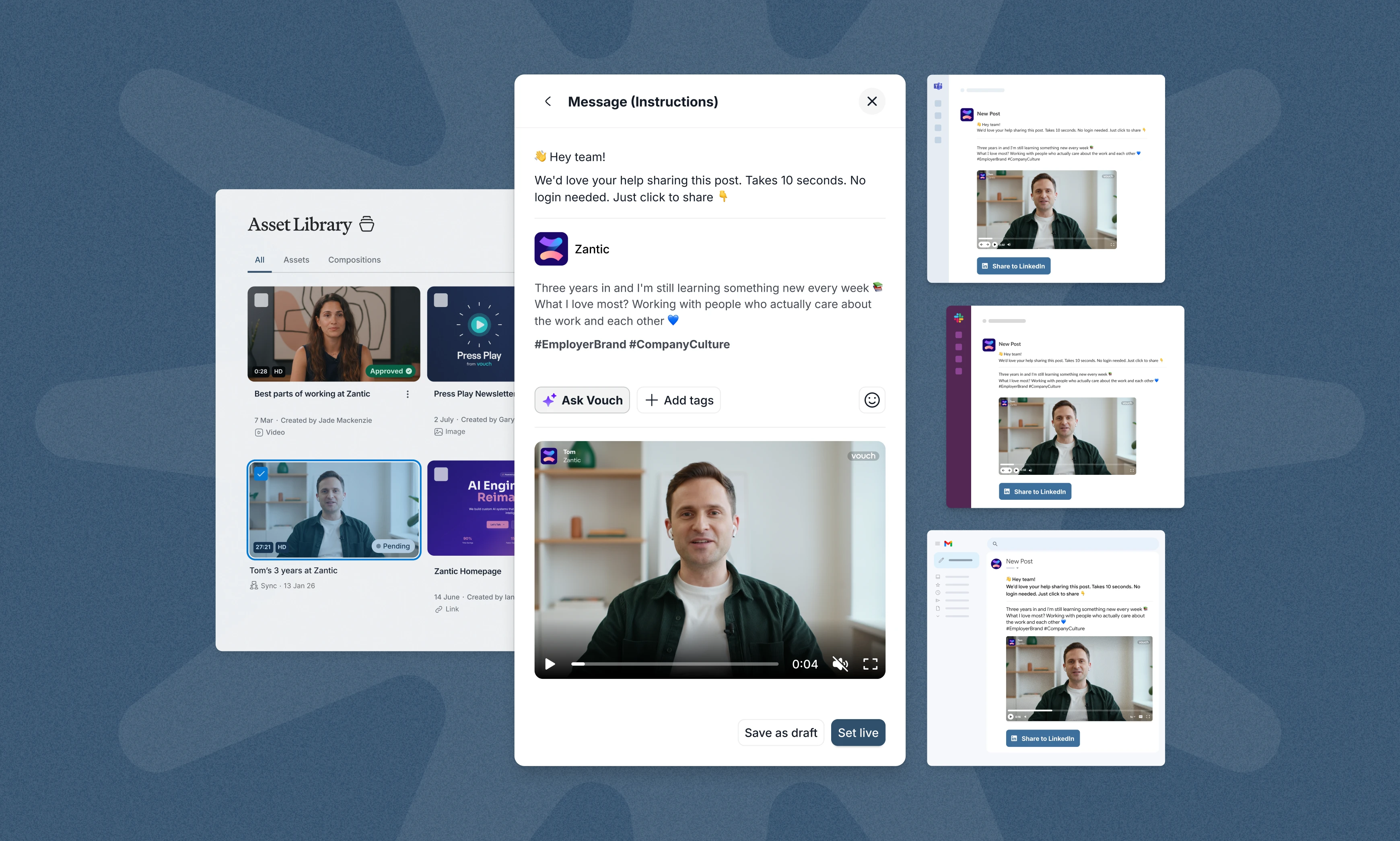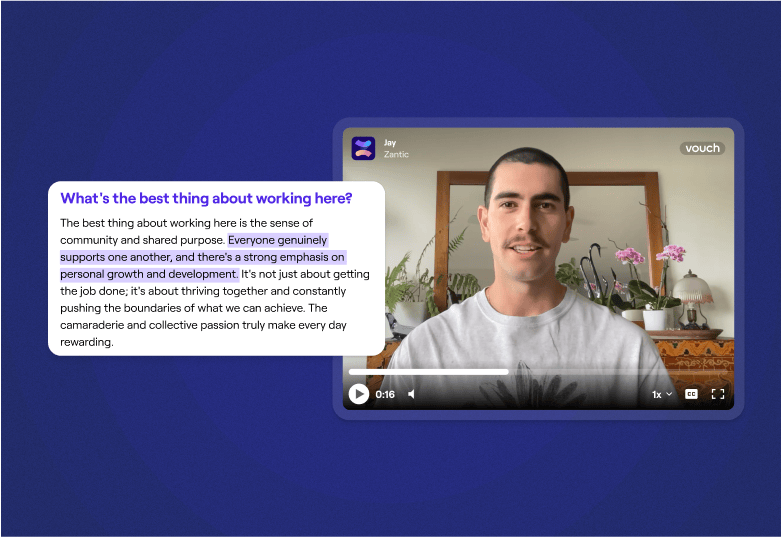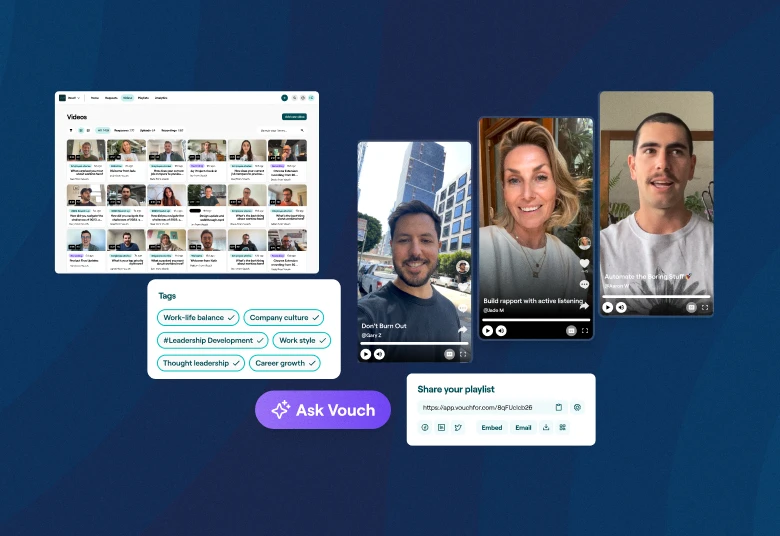Employee motivation is one of the most important factors to consider in any workplace, and despite best efforts, implementing new company policies will likely have little effect on human motivation and human behavor.
Employee motivation can rarely be forced.
So in 2026 with some financially challenging times for many, motivation is a major factor for optimizing your employer brand, employee happiness and company success.
Let's get started.
Key Takeaways:
- Implementing new company policies may have little effect on human behavior, as motivation is a complex factor that cannot be forced.
- Motivation theories, such as Herzberg's Two-Factor Theory and Maslow's Hierarchy of Needs, highlight the importance of understanding individual human needs, desires, and goals to explain human behavior and drive motivation.
- Encouraging open internal communications, providing opportunities for growth, promoting work-life balance and being mindful are all key to these theories and results.
- HR teams and business leaders need to be always working on motivation theories to connect and inspire their teams.
- Modern video tools like Vouch can help with your internal communications, surveys and team updates, which can have major motivational results.
What Are Motivational Theories?
These theories are a collection of ideas, concepts, and models that aim to explain the underlying factors that drive human behaviour.
Theories that also inspire your employees to their best work.
Motivational theories take into account psychological needs and individual needs, desires, goals, and rewards, among others, to provide insights into why people behave the way they do.
Employee motivation not only affects the productivity of your team but it also plays a critical role in your employer brand.
As such, the world's best companies are constantly seek effective ways to motivate and keep their employees engaged.
So let's dive in with the most popular theories in use today.
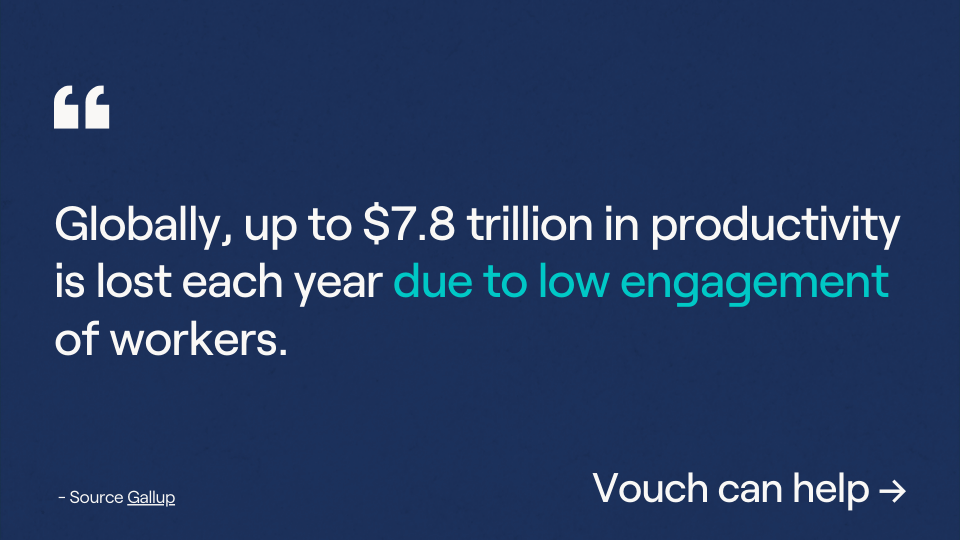
The AI-enabled workspace for talent teams.
- Unified workspace for talent teams
- Accelerate hiring with AI tools
- Auto-generate polished hiring and employer brand content
- Easily repurpose assets across all channel
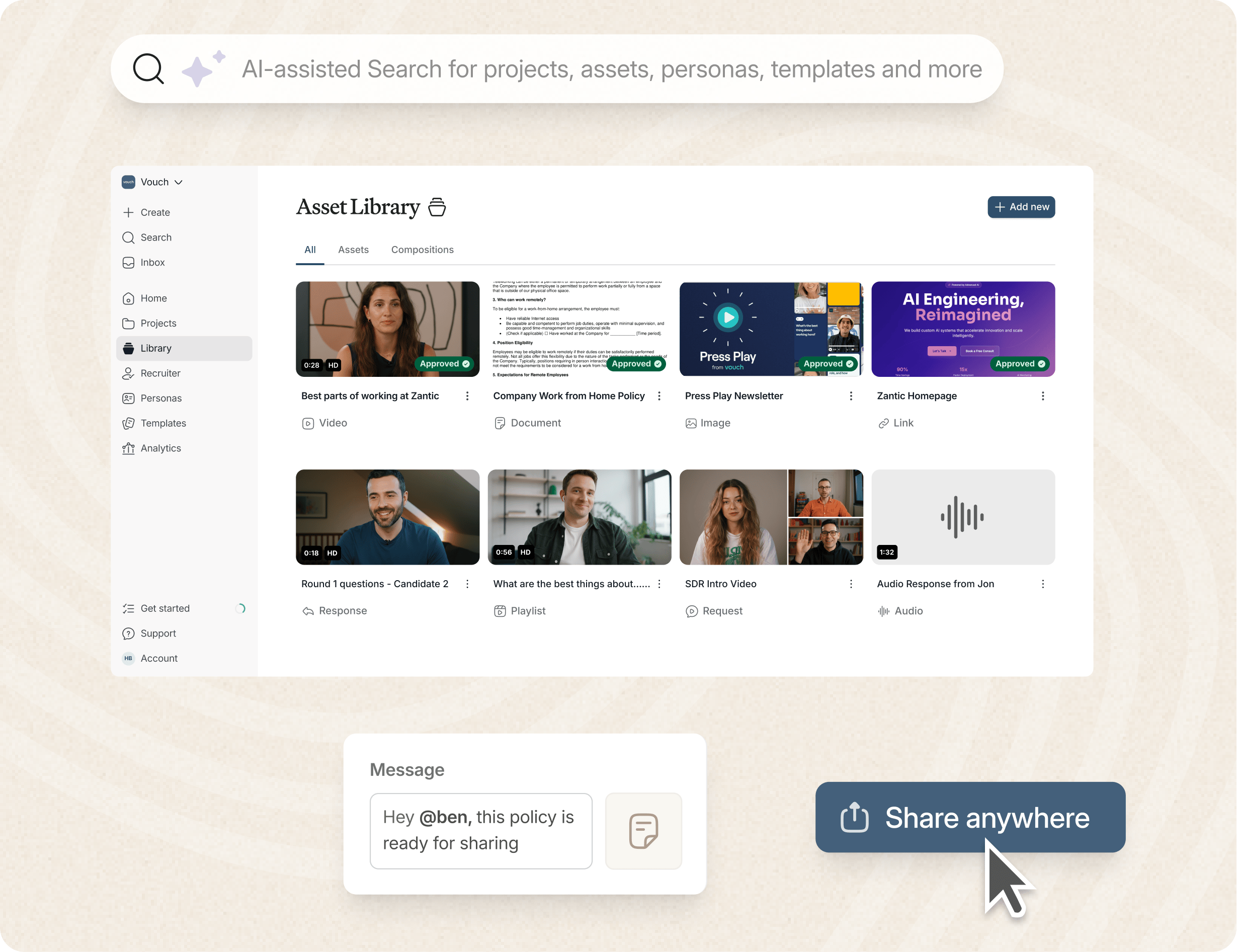
Top 7 Most Popular Motivation Theories Used Today
This article also offers practical guidelines on using proven theories to create a positive work environment that builds productivity and job satisfaction.
Here is a high-level overview of the best and most common motivation theories used by employers today:
1. Herzberg's Two-Factor Theory of Motivation
Frederick Herzberg's Two-Factor theory of motivation is one of the most influential theories in the field. It states that two primary factors influence and cater to core human biological needs: hygiene factors and motivators.
Hygiene factors refer to the basic physiological needs that must be met for an employee to be satisfied with their job, such as salary, work conditions, and interpersonal relationships.
On the other hand, motivators are aspects that contribute to job satisfaction and intrinsic motivation, such as recognition, growth opportunities, and challenging work within his drive theory.
Herzberg's theory is one of the simplest and most favoured theories today due to only two essential parts that resonate with our biological human nature.
2. Maslow's Theory Of Hierarchy of Needs
Maslow’s hierarchy of needs is another widely recognized motivation theories highlighting the different needs levels humans strive to fulfil.
According to Abraham Maslow's theory, individuals have five basic but high need elements: physiological, safety, social, esteem, and self-actualization.
Maslow’s theory states that these needs are arranged in a pyramid where the most fundamental ones must be met before an individual can reach the next level in their career and personal goals. For employers, this theory emphasizes the importance of understanding their employees' needs and providing them opportunities for personal growth and development.
3. McClelland's Three Needs Theory
David McClelland's Three Needs Theory is based on the idea that individuals have three primary needs: achievement, affiliation, and power. According to this theory, these needs vary in intensity and can significantly influence an individual's behaviour and extrinsic motivation in the workplace.
The need for achievement refers to the desire to excel and succeed at challenging tasks, while the demand for affiliation is the desire for close interpersonal relationships with their social environment. This theory is a great one to use, especially to support employee motivation in high-performance sales and marketing roles for your desired outcome.
4. Taylor's Motivation Theory
Frederick Taylor's theory, also known as the Scientific Management theory, focuses on improving employee efficiency and productivity through scientific methods. It emphasizes the importance of human behavior with clear instructions and training to perform their tasks most efficiently.
According to Taylor, employees are primarily motivated by financial incentives rather than social or emotional factors. He believed that by implementing a system of piece-rate pay, where workers are paid based on their output, employers could increase worker productivity and motivation significantly.
In more challenging economic times, this theory is a powerful one, and we are seeing a shift to employee incentives from companies like Google in the form of company shares, which is even further inspiration for your employees to make your company succeed.
5. Mayo's Theory of Management
The Hawthorne studies conducted by Elton Mayo in the 1920s revolutionized how employers viewed employee motivation. Through these studies, Mayo discovered that productivity depends not solely on external factors such as work conditions and incentives but also on social and psychological factors.
Mayo's management theory emphasizes the importance of creating a positive work environment where employees feel valued and supported by their peers and superiors. He also highlighted the significance of communication and teamwork in promoting employee inspiration and action.
6. General Theories: The Incentive Theory
Incentive theory suggests that individuals are motivated by external rewards and incentives. According to this theory, people are more likely to engage in certain behaviours if they believe it will lead to desirable outcomes or rewards as part of their lives course of action. For employers, this means using process theories for rewards and recognition to motivate employees.
Incentives can come in various forms, such as bonuses, promotions, gift cards, or even simple acts of appreciation like public recognition or a handwritten thank-you note. These incentives can be used to reinforce desired behaviours and performance, creating a culture of motivation and engagement within the workplace.
7. General Theories: Competence Theory
Competence theory, or self-determination theory, focuses on the role of personal competence and autonomy in motivation. According to this theory, individuals are motivated when they feel competent in their abilities and have control over their actions.
This theory emphasizes the importance of providing employees with opportunities for growth and autonomy. Employers can create this by offering challenging work assignments, encouraging innovation and creativity, and involving employees in decision-making processes.
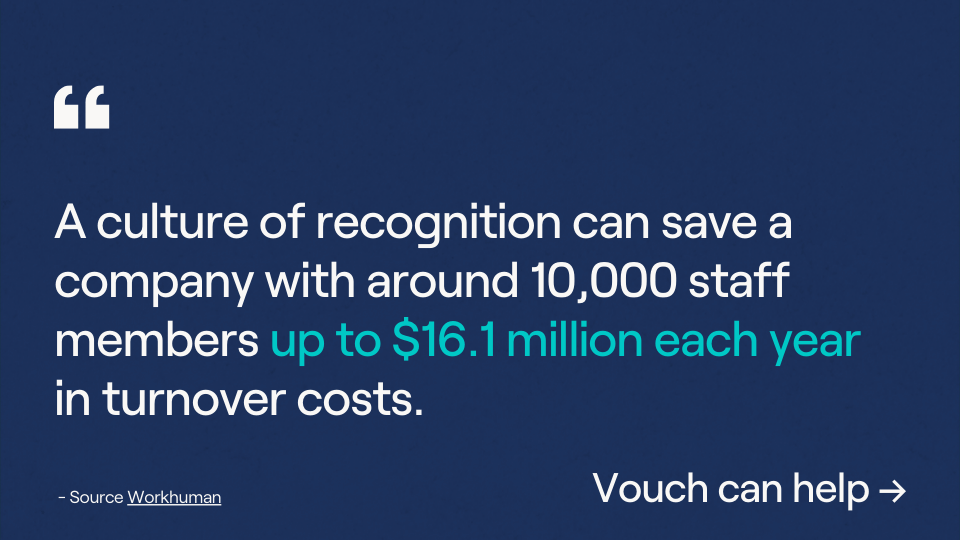
What Are The Advantages of Implementing A Motivation Theory?
These seven key theories in this article allow employers to understand their employees' needs and desires and focus on the strategies that yield the best results.
These theories are designed to lead to a more engaged and satisfied workforce, increasing productivity and retention rates.
For example, Maslow's Hierarchy of Needs highlights the importance of fulfilling basic physiological and safety needs before addressing higher-level needs like self-actualization. Employers can use this theory to ensure their employees' fundamental needs are met, such as providing a safe work environment and fair compensation, before focusing on other motivators.
What Are The Foundations Of Every Theory?
When we look at all of the most commonly used strategies, there are commonalities across the board.
Even if you don't want to adopt the method above, the theories of motivation can be boiled down to a few key ingredients:
Encourage personal growth and development
All of these theories also emphasize the significance of personal growth and development.
By offering opportunities for learning and advancement, employers can increase employee satisfaction and develop a skilled and knowledgeable workforce.
For instance, McClelland's Three Needs Theory suggests that individuals need achievement. Employers can tap into this need by providing employees with challenging projects or training programs that allow them to develop new skills and achieve their goals.
Promoting a positive work environment
Motivation theories highlight the importance of creating an environment where employees feel valued, respected, and motivated to contribute their best efforts by creating a supportive and inclusive workplace culture.
Mayo's Theory of Management emphasizes the role of social and psychological factors. Employers can apply this theory by encouraging teamwork, open communication and creating opportunities for social interaction among employees.
Listening closely
Every theory in this guide has a significant impact on enhancing overall employee performance. However, at the end of the day, nothing beats listening.
One easy way to do this is with a tool like Vouch, where you can start softly by surveying your employees on what they love and don't love about your company. Naturally, you'll need to read between the lines, and this is where video can help, as you can see the emotions on your employee's faces.
When you listen, employees feel valued and like you care, and that is the biggest motivator of all.

Motivation Theories Increasing Employee Retention
Employee turnover, often due to low employee engagement, can be costly for organizations in terms of time and resources.
These theories can help reduce turnover rates by addressing the underlying factors that cause employees to leave and ensuring those still in your team are motivated and moving forward.
For instance, Herzberg's Two-Factor Theory suggests that job dissatisfaction is caused by hygiene factors such as salary, benefits, and working conditions. By ensuring these factors are met, you can prevent employees from becoming dissatisfied with their jobs and seeking employment elsewhere.
5 Tips For Using Motivation Theories Right Now
Here are some tips to effectively apply these theories in the workplace in a minimal amount of time.
Of course, you need to find the approach that also works for your company strategy - however, any advances in any of these areas are sure to yield a positive result.
1. Encourage open communication
It doesn't matter if your business is big, small, a remote team, etc., effective communication is crucial in creating a positive work environment and promoting employee motivation in any industry. This starts by encouraging open and transparent communication between employees and management to understand their needs better.
Regular feedback sessions using tools like Vouch, one-on-one meetings, and surveys can help employers gain valuable insights into what motivates their workforce.
2. Tailor incentives and rewards
The incentive theory suggests that external rewards can motivate individuals and improve employee engagement. However, tailoring these incentives and rewards to align with each employee's specific needs is essential. For instance, an employee motivated by recognition may appreciate a public acknowledgment of their achievements, while another may prefer a monetary bonus.
It is not always great to have different incentives for different employees, but you need to look at all the positive and negative outcomes and make a decision on what will help your company grow.
3. Provide opportunities for growth
The expectancy theory highlights the importance of providing employees with opportunities for personal growth and development. Employers should offer training programs, mentorship opportunities, or challenging projects that allow employees to develop new skills and advance in their roles.
This enhances employee satisfaction and leads to a more skilled and productive workforce that is as invested in your company's success as you are invested in theirs.
4. Promote work-life balance
Recognizing the importance of work-life balance in employee motivation is key for better performance levels. Having flexible schedules, remote working options, or alternative work arrangements helps employees balance their personal and professional lives - and combat a lack of motivation as your employee feel obliged, and happy to go an extra mile.
Work life balance strategies can also remove negative behavior and improve company culture, that can lead to improved job satisfaction and overall well-being, leading to higher levels of motivation and productivity in the workplace.
The key to successful work-life balance and motivated employees is in creating goal-directed behavior changes that drive more productive employee behaviors and have positive consequences for having a life, not the other way around.
5. Be mindful of individual differences
It's essential to remember that every employee is different and may be motivated by other factors. Employers should take the time to understand their employees' individual needs and tailor their strategies accordingly.
This can involve conducting personality assessments, understanding each employee's strengths and weaknesses, or simply having open and honest conversations about what motivates them. Like always, positive reinforcement and ongoing education are the best way to boost morale and employee value, and you can read more about reinforcement theory and the positive correlation between beliefs and performance to better understand and cater to the individual needs of your employees.
Bonus: Continuously revisit and revise strategies
Motivation is not a one-time task, and you need to continuously revisit and revise your strategy to ensure you are meeting the changing needs of your employees. Regularly soliciting employee feedback (with tools like Vouch) also helps you grow your Employer Brand and motivation levels in the long run.
These tips can help employers effectively apply motivation theories to create a motivated, engaged, and productive workforce.

Who Are the Top 10 Companies Who Are Known for Implementing Motivation Theories Into Their Companies?
These companies all show that integrating motivation theories into your organization can lead to enhanced employee engagement and performance.
Here are some of the companies we love and who leverage motivational theories:
1. Atlassian (Australia)
- Motivation Strategy: Leverages Self-Determination Theory by promoting autonomy, mastery, and purpose.
- Example: Transparent feedback loops and employee-driven development cycles.
- Source: TIME.com – Primed to Perform
2. Valve Corporation (USA)
- Motivation Strategy: Implements Flat Organizational Structure and open project allocation.
- Example: Employees choose projects they're passionate about, enhancing autonomy.
- Source: Wikipedia – Flat Organization
3. Semco Partners (Brazil)
- Motivation Strategy: Embodies Herzberg’s Two-Factor Theory and Workplace Democracy.
- Example: Employees help make company decisions, from salaries to strategy.
- Source: Wikipedia – Workplace Democracy
4. Medallia (USA)
- Motivation Strategy: Enhances intrinsic motivation through thoughtful onboarding and cultural fit.
- Example: Personal gifts and human-centric welcome experiences.
- Source: TIME.com – Primed to Perform
5. Reaktor (Finland)
- Motivation Strategy: Promotes Self-Determination Theory with flat hierarchies and team autonomy.
- Example: Self-managing teams and complete transparency on business performance.
- Source: Wikipedia – Flat Organization
6. Movement Mortgage (USA)
- Motivation Strategy: Focus on Maslow’s Hierarchy of Needs by aligning work with personal and community values.
- Example: Strong emphasis on purpose and community-driven initiatives.
- Source: TIME.com – Primed to Perform
7. Tesco (UK)
- Motivation Strategy: Blends Taylor’s Scientific Management with Maslow and Herzberg to motivate via pay, recognition, and career growth.
- Example: Structured rewards and recognition aligned with performance.
- Source: Business Case Studies UK
8. DISS d.o.o. (Slovenia) (Note: site in Slovenian)
- Motivation Strategy: Applies Self-Determination Theory with emphasis on internal motivation.
- Example: Fosters autonomy and competence through professional development and team-based goals.
- Source: Econstor – Motivation Study PDF
9. Shape Security (USA) (Note: Acquired by F5 Networks)
- Motivation Strategy: Encouraged intrinsic motivation via innovation and learning focus.
- Example: Emphasis on problem-solving and continuous rethinking of practices.
- Source: TIME.com – Primed to Perform
10. Birchbox (USA)
- Motivation Strategy: Uses Herzberg’s Two-Factor Theory to support development and recognition.
- Example: Dedicated People & Culture team manages engagement and aligns company values with daily work.
- Source: TIME.com – Primed to Perform
FAQs
What is Intrinsic Motivation and How Does it Influence Human Behavior?
Intrinsic motivation is the internal drive to engage in activities simply for the joy or satisfaction they bring, rather than for external rewards.
Intrinsic motivation plays a powerful role in shaping human behavior by creating personal growth, fulfilling self-actualization needs, and promoting long-term engagement. This often results in benefits such as higher job satisfaction and more motivated, self-driven actions.
How Do Theories Like Herzberg's Two-Factor Theory Affect Employee Satisfaction?
Herzberg's Two-Factor Theory divides workplace factors into two categories:
- Hygiene factors, e.g., company policies, job security and more to prevent dissatisfaction.
- Motivators, e.g., achievement, recognition to actively enhance employee satisfaction.
True job satisfaction and performance improvements come from motivators, which drive personal development and engagement.
What Role Does External Motivation Play According to Drive and Incentive Theories?
Drive and Incentive Theories explain that behavior can be influenced by external motivators, such as rewards, bonuses, or avoiding penalties. These theories suggest people are driven to act by the desire to gain positive outcomes or avoid negative ones, shaping both individual motivation and broader company culture.
How Does Self-Determination Theory Explain Employee Motivation?
Self-Determination Theory emphasizes three core psychological needs that fuel motivation:
- Autonomy – having control over one’s work.
- Competence – feeling capable and effective.
- Relatedness – experiencing a sense of connection with others.
When these needs are met, employees are more intrinsically motivated, which boosts job satisfaction and workplace performance.
What Is the Impact of Equity Theory on Employee Motivation and Performance?
Equity Theory centers around fairness in the workplace. It proposes that employees assess their inputs (effort, skill) and outcomes (pay, recognition) in comparison to others. If they perceive inequality, it can lead to dissatisfaction, reduced motivation, and ultimately hinder performance and morale.
How Do Process Theories of Motivation Differ from Content Theories?
- Process theories, e.g., Expectancy Theory, Reinforcement Theory, focus on how motivation occurs, looking at thoughts, expectations, and perceptions.
- Content theories, e.g., Maslow’s Hierarchy of Needs, McClelland’s Theory focus on what motivates individuals with specific needs that drive behavior, from basic survival to personal growth.
Understanding both gives a fuller picture of workplace motivation.
How Can Upper Management Achievement Motivation in Employees?
Leaders can cultivate achievement motivation by:
- Setting challenging yet realistic goals.
- Providing consistent positive feedback and rewards.
- Creating growth and development opportunities.
Aligning these practices with frameworks like McClelland’s Achievement Motivation Theory encourages employees to strive for excellence, boosting both satisfaction and performance.
Conclusion
Motivation theories are crucial in understanding what drives individuals to perform at their best in the workplace. By aligning individual goals with organizational objectives and other environmental factors, while addressing underlying factors that cause dissatisfaction, and tailoring strategies to fit individual needs, employers can create a more engaged and motivated workforce.
It's important for employers to listen and continuously revisit and revise their strategies to ensure they are meeting the changing needs of employees in 2025 and beyond.
Bring Your Motivational Theories To Life With Vouch!
Loved by companies like Canva, Nike, Cisco, HubSpot, Amazon and more, tools like Vouch make leveraging video in your business remarkably easy, for increased employee engagement, inspiration and motivation.
Be sure to book a Vouch demo today and chat with a video content expert.
You might also like

Elevate Your Brand Today With Vouch
Discover how Vouch can accelerate talent acquisition while helping you stay on-brand.

